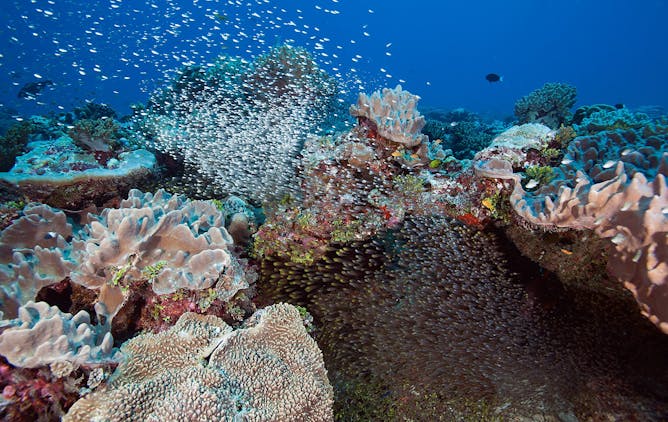|
To float in zero gravity is a dream for many people – I certainly would sacrifice a lot to see Earth from orbit, a pale blue dot against the backdrop of space. Twenty years ago, businessman Dennis Tito paid Russia US$20 million to hitch a ride to the International Space Station, where he stayed for a little over a week. For the most part, access to the stars has been limited to government-funded missions and the astronauts who fly them. But thanks to the increasing privatization of space flight, tourists might soon outnumber the professionals in the cosmos.
In the coming years, companies like Blue Origin, Virgin Galactic and SpaceX plan to begin taking paying civilian customers to the stars. As Wendy Whitman Cobb, a professor at the U.S. Air Force School of Advanced Air and Space Studies, explains, space tourism is a way for companies to demonstrate the safety of space travel today and show that in the future it will probably become commonplace. But sightseeing trips around the Earth aren’t the
end goal, she says. They are also important stepping stones toward the bigger aims of humanity in space.
This week we also liked articles about teens using social media to cope with sexual harassment, the history of financial speculation and Puritan crackdowns on May Day celebrations.
|

Space tourism has been slow to get off the ground.
Nadia Bormotova/iStock via Getty Images Plus
Wendy Whitman Cobb, US Air Force School of Advanced Air and Space Studies
The first space tourist left Earth 20 years ago aboard a Russian rocket. Now, private companies are on the cusp of offering trips off Earth for those who can pay.
|

Girls face lasting negative effects of sexual harassment.
FatCamera/E+ via Getty Images
Christia Spears Brown, University of Kentucky
A viral TikTok video is helping girls bear witness to the harassment they experience at school.
|

The Chagos Reef was vibrant before the heat wave.
Ken Marks/Khaled bin Sultan Living Oceans Foundation
Sam Purkis, University of Miami
Scientists watched in real time as rising ocean heat transformed the sprawling reef. It was a harbinger for ecosystems everywhere as the planet warms.
|
|
|
-
Gayle Rogers, University of Pittsburgh
Until the late 1800s, moments of widespread high-risk financial gambling weren't considered manias but the results of individual actors, who bore responsibility for the disastrous results.
-
Peter C. Mancall, USC Dornsife College of Letters, Arts and Sciences
The Puritans had little tolerance for those who didn't conform to their vision of the world.
-
Raymond Scheppach, University of Virginia
The headlines were inescapable: States faced a financial disaster of epic proportions because of COVID-19. The predictions were wrong.
|
|